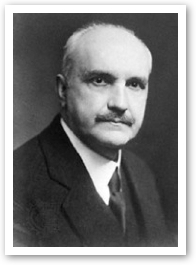Piety
- DONALD DEMARCO
I am writing this article on Memorial Day, a time set aside for reflecting on the debt we owe to those who came before us and fought, struggled, and died in defending the values and privileges we often take for granted. Today is an occasion for thinking seriously and appreciatively about the virtue of piety.
 |
The philosopher George Santayana once said that a soul is "but the last bubble of a long fermentation process in the world." "This consciousness," he went on to say, "that the human spirit is derived and responsible, that all its functions are heritages and trusts, involves a sentiment we may call piety."
Bye, bye
American piety
Piety was a favorite virtue of Socrates. Far from considering himself a self-made man, the gadfly of Athens gave full credit for whatever civility he enjoyed to those who preceded him. Ralph Waldo Emerson, by contrast, America's head cheerleader for the man of self-reliance, spoke of "the sovereign individual, free, self-reliant, and alone in his greatness." Emerson's belief in the "greatness" of the individual is a dangerous illusion. It is a presumption that naturally leads to pride.
In a very real sense, America's democratic spirit owes far more to Socrates than it does to Emerson. "Greatness" is never a purely individual accomplishment. Its roots are always in others and in times past. Sir Isaac Newton, with appropriate piety, saw himself as a mere "pygmy," but as having the decisive advantage of standing on the shoulders of "giants." Albert Einstein stated, in rather moving prose, "A hundred times every day I remind myself that my inner and outer lives are based on the labors of other men, living and dead, and that I must exert myself in order to give in the same measure as I have received and am still receiving."
The great enemy of piety is individualism. Individualism is the illusion that we are somehow self-made, self-reliant, and self-sufficient. It is essentially an anti-social form of thinking that belongs to Nietzsche, Rousseau, Sartre, and Ayn Rand rather than to Socrates, St. Augustine, St. Thomas Aquinas, and the Founding Fathers of the American Constitution.
Not a private affair
The soul of individualism is unfettered choice. Abortion, for example, is presumed to be a private affair. Magically, as its advocates allege, it affects neither the child, its father, the family, nor society. Yet every woman who has had an abortion was formed and brought into the world through the union of her parents and the labor of a mother. Pure individuality is sterile. No one begins his life sui generis. Our beginning coincides with a debt. Piety requires us to be grateful to those who begot us. It also evokes in us a duty to give what we have so that we can give to our descendents as our ancestors gave to us.
The basis of piety is the sober realization that we owe our existence and our substance to powers beyond ourselves. We are social, communal beings. We are not islands; we are part of the mainland. The mere individual is a truncated being, deprived of both a heritage and a future. He is a fictional Robinson Crusoe with a soul shivering for companionship. We are persons, possessors of unique abilities, and also the inheritors of a social destiny.
"Individuality" is the result of a fall from grace. Adam and Eve behaved as persons until sin reduced them to individuals. As individuals, they began lusting after each other. The aprons of fig leaves they fashioned indicated that they were profoundly ashamed of their new identities as self-centered and self-absorbed individuals.
Nourished by our roots
"Piety," said Cicero, "is justice toward the gods," and "the foundation of all virtues." By extension, piety is the just recognition of all we owe to our ancestors.
Plato was one of the greatest philosophers who ever lived. Yet, he never wrote specifically about his own views. Though he wrote many lengthy and elaborate works in which he raised virtually every conceivable philosophical issue, he enshrined others, especially his beloved Socrates, as his mouthpieces. The explanation for this, as scholars have pointed out, is that Plato was living as he was well aware in a "post-war" society that had survived its own day of greatness. In recreating the mind of the principal philosopher of the fifth century B.C. and the circle in which he moved, he was expressing his duty in piety to Socrates, to the perished splendors of Athens, and to the notable Athenian family to which he belonged.
Memory recalls great moments past. A memorial enshrines them. A day of memorial is an occasion for collective reflection, tributes, and thanksgiving. Piety, by honoring what poured out from the past to become our own living substance, enlarges and enriches us. It disposes us to give thanks and to live in such a manner that we ourselves may one day become worthy objects for the thanks of others.
 This is Meaghen Gonzalez, Editor of CERC. I hope you appreciated this piece. We curate these articles especially for believers like you.
This is Meaghen Gonzalez, Editor of CERC. I hope you appreciated this piece. We curate these articles especially for believers like you.
Please show your appreciation by making a $3 donation. CERC is entirely reader supported.

Acknowledgement
Donald DeMarco. "Piety." Lay Witness (September 2001).
Lay Witness is the flagship publication of Catholics United for the Faith. Featuring articles written by leaders in the Catholic Church, each issue of Lay Witness keeps you informed on current events in the Church, the Holy Father's intentions for the month, and provides formation through biblical and catechetical articles with real-life applications for everyday Catholics.
The Author






